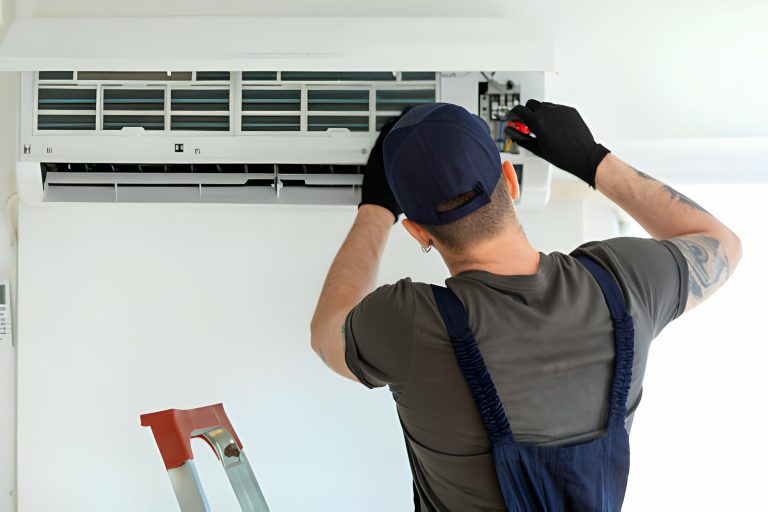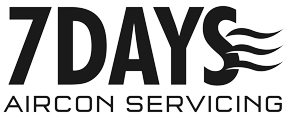
Air conditioning is a necessity in Singapore, where temperatures often soar, and humidity levels remain high year-round. However, running an aircon system can lead to significant energy consumption, contributing to higher utility bills and environmental impact. Fortunately, there are several practical steps homeowners can take to improve energy efficiency and reduce their aircon’s energy consumption. In this comprehensive guide, we’ll explore practical tips to lower your aircon’s energy consumption and promote sustainable cooling solutions.
Aircon servicing in Singapore emphasizes the importance of energy efficiency as a means of reducing energy consumption and environmental impact. By implementing energy-saving measures and maintaining aircon systems properly, homeowners can enjoy comfortable indoor environments while minimizing their carbon footprint.
**1. Optimize Temperature Settings**
Setting your aircon temperature to the highest comfortable level can significantly reduce energy consumption. Aim for a temperature between 25-27°C during the day and slightly higher at night to save energy without sacrificing comfort.
**2. Use Fans to Supplement Cooling**
Ceiling fans or portable fans can help circulate air and distribute cool air more effectively, allowing you to raise the aircon temperature slightly while still maintaining comfort. Using fans in conjunction with your aircon can reduce energy consumption and save money on cooling costs.
**3. Seal Air Leaks and Insulate**
Ensure that doors and windows are properly sealed to prevent cool air from escaping and warm air from entering your home. Proper insulation in walls and ceilings can also help maintain a consistent indoor temperature and reduce the workload on your aircon system.
**4. Schedule Regular Aircon Servicing**
Regular aircon servicing is essential for maintaining optimal performance and energy efficiency. During servicing, technicians clean and lubricate components, check for leaks, and ensure that your aircon system operates at peak efficiency, reducing energy consumption and prolonging the lifespan of the unit.
**5. Clean or Replace Air Filters Regularly**
Dirty air filters restrict airflow, forcing the aircon system to work harder to maintain the desired temperature. Clean or replace air filters regularly to ensure proper airflow and improve energy efficiency. This simple maintenance task can significantly reduce energy consumption and improve indoor air quality.
**6. Use Energy-Efficient Aircon Models**
When purchasing a new aircon system, opt for energy-efficient models with high Energy Efficiency Ratio (EER) ratings. These units are designed to consume less energy while providing the same level of cooling, helping you save money on energy bills in the long run.
**7. Install Programmable Thermostats**
Programmable thermostats allow you to set temperature schedules based on your daily routine, ensuring that your aircon operates only when needed. By programming your aircon to turn off or adjust temperatures during times when you’re away or asleep, you can save energy without sacrificing comfort.
**8. Keep Air Vents Clear**
Ensure that air vents are not blocked by furniture, curtains, or other obstructions, as this can restrict airflow and reduce the efficiency of your aircon system. Keep air vents clear to allow for proper air circulation and maximize energy efficiency.
**9. Use Curtains or Blinds to Block Sunlight**
Direct sunlight can heat up your home, forcing your aircon system to work harder to maintain a comfortable temperature. Use curtains, blinds, or shades to block sunlight during the hottest parts of the day, reducing the workload on your aircon and saving energy.
**10. Practice Energy-Saving Habits**
Simple habits like turning off lights and appliances when not in use, using energy-efficient lighting, and unplugging electronics can help reduce overall energy consumption and lower your aircon’s energy bills.
**Conclusion**
Improving energy efficiency is essential for reducing energy consumption, lowering utility bills, and minimizing environmental impact. By implementing practical tips such as optimizing temperature settings, using fans to supplement cooling, scheduling regular aircon servicing, and practicing energy-saving habits, homeowners can lower their aircon’s energy consumption while maintaining comfortable indoor environments. With a combination of smart choices and proper maintenance, it’s possible to achieve significant energy savings without sacrificing comfort.
**FAQs**
1. **How much can I save on energy bills by improving aircon energy efficiency?**
The amount you can save on energy bills depends on factors such as the size and efficiency of your aircon system, your usage habits, and the measures you implement to improve energy efficiency. However, homeowners can typically save up to 30% on cooling costs by implementing energy-saving measures.
2. **Is it worth investing in a more energy-efficient aircon model?**
Yes, investing in a more energy-efficient aircon model can result in significant long-term savings on energy bills. While the upfront cost may be higher, energy-efficient models consume less energy, leading to lower cooling costs over time.
3. **How often should I schedule aircon servicing to maintain energy efficiency?**
It’s recommended to schedule aircon servicing at least once a year to maintain energy efficiency. However, homes with heavy usage or older systems may benefit from more frequent servicing.
4. **Can sealing air leaks really make a difference in energy efficiency?**
Yes, sealing air leaks can make a significant difference in energy efficiency by preventing cool air from escaping and warm air from entering your home. Proper insulation and sealing can reduce the workload on your aircon system, resulting in lower energy consumption and utility bills.
5. **Are there any government incentives or rebates available for energy-efficient aircon upgrades?**
Yes, the Singapore government offers various incentives and rebates for energy-efficient upgrades, including aircon systems. Homeowners may be eligible for grants, subsidies, or tax credits for purchasing energy-efficient appliances or upgrading to more efficient models.
6. **Does using fans with my aircon really help save energy?**
Yes, using fans to supplement cooling can help reduce the workload on your aircon system, allowing you to raise the thermostat setting slightly while still maintaining comfort. This can result in energy savings and lower cooling costs.
7. **Can I improve energy efficiency by closing vents in unused rooms?**
Closing vents in unused rooms can actually reduce energy efficiency by increasing pressure in the ductwork and forcing the aircon system to work harder to maintain airflow. It’s best to keep all vents open to allow for proper air circulation and energy-efficient operation.
8. **How can I tell if my aircon system is operating efficiently?**
Signs that your aircon system may not be operating efficiently include reduced cooling performance, uneven temperatures throughout your home, increased energy bills, and frequent breakdowns or repairs. If you notice any of these signs, it’s essential to schedule aircon servicing to address any issues and improve efficiency.
9. **What are some energy-saving habits I can practice to reduce aircon energy consumption?**
Energy-saving habits include turning off lights and appliances when not in use, using energy-efficient lighting, unplugging electronics, using ceiling fans to supplement cooling, and setting temperature schedules with a programmable thermostat.
10. **Are there any DIY tasks I can perform to improve aircon energy efficiency?**
Yes, homeowners can perform several DIY tasks to improve aircon energy efficiency, such as cleaning or replacing air filters, sealing air leaks, and keeping air vents clear of obstructions. However, for more complex tasks or issues, it’s best to consult with a professional aircon servicing company in Singapore.

